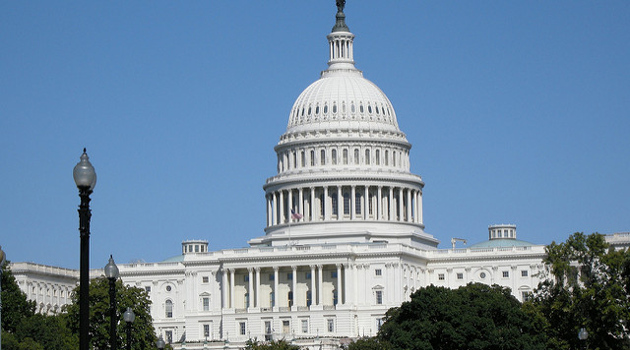I gave a speech this past weekend about the economy and fiscal policy, and I made my usual points about government being too big and warned that the problem would get much worse in the future because of demographic change and poorly designed entitlement programs.
Which is probably what the audience expected me to say.
But then I told the crowd that a balanced budget requirement is neither necessary nor sufficient for good fiscal policy.
Which may have been a surprise.
To bolster my argument, I pointed to states such as Illinois, California, and New Jersey. They all have provisions to limit red ink, yet there is more spending (and more debt) every year. I also explained that there are also anti-deficit rules in nations such as Greece, France, and Italy, yet those countries are not exactly paragons of fiscal discipline.
To help explain why balanced budget requirements are not effective, I shared this chart showing annual changes in revenue over the past two decades for the federal government (Table 1.1 of OMB’s Historical Tables).
It shows that receipts are very volatile, primarily because they grow rapidly when the economy is expanding and they contract – sometimes sharply – when there’s an economic downturn.
I pointed out that volatile revenue flows make it very difficult to enforce a balanced budget requirement.
Most important, it’s extremely difficult to convince politicians to reduce spending during a recession since that’s when they feel extra pressure to spend more money (whether for Keynesian reasons of public-choice reasons).
Moreover, a balanced budget requirement doesn’t impose any discipline when the economy is growing. If revenues are growing by 8%, 10%, or 12% per year, politicians use that as an excuse for big increases in the spending burden.
Needless to say, those new spending commitments then create an even bigger fiscal problem when there’s a future downturn (as I’ve noted when writing about budgetary problems in jurisdictions such as Cyprus, Alaska, Ireland, Alberta, Greece, Puerto Rico, California, etc).
So what, then, is the right way of encouraging or enforcing prudent fiscal policy?
I told the audience we need a federal spending cap, akin to what exists in Switzerland, Hong Kong, and Colorado. Allow politicians to increase spending each year, preferably at a modest rate so that there’s a gradual reduction in the fiscal burden relative to economic output.
I’ve modified the above chart to show how a 2% spending cap would work. Politicians could increase spending when revenues are falling, but they wouldn’t be allowed to embark on a spending spree when revenues are rising.
Spending caps create a predictable fiscal environment. And limiting spending growth produces good outcomes.
If you’re still not convinced, this CF&P video hopefully will make a difference.
P.S. Spending caps work so well that even left-leaning international bureaucracies such as the OECD and IMF have acknowledged that they are the only effective fiscal rule.
———
Image credit: Shaw Girl | CC BY-NC-ND 2.0.



